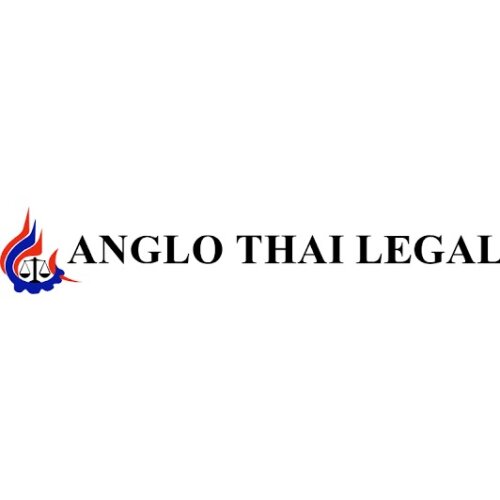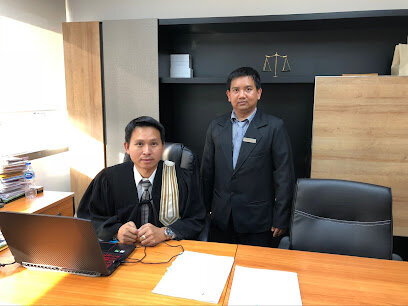About Oil, Gas & Energy Law in Bangkok, Thailand
Oil, Gas & Energy law in Bangkok is a significant sector given Thailand’s substantial role in Southeast Asia's energy landscape. The country has a diverse energy mix, focusing on natural gas, oil, and increasingly, renewable energy. Legal frameworks are put in place to govern exploration, extraction, production, and distribution activities. Due to the strategic importance of energy resources, the legal environment is dynamic, requiring companies and individuals to navigate complex regulations and compliance issues effectively.
Why You May Need a Lawyer
Engaging a lawyer skilled in Oil, Gas & Energy can be crucial for several reasons:
- Compliance with Regulation: The energy sector is heavily regulated. A lawyer can help ensure that your operations comply with all applicable laws and regulations.
- Contract Negotiation: Whether you're entering into joint ventures, securing exploration rights, or engaging in production-sharing contracts, a lawyer can assist in drafting and negotiating terms.
- Dispute Resolution: Legal disputes can arise over land use, environmental impact, and contractual disagreements. Legal guidance is crucial to resolving these efficiently.
- Mergers and Acquisitions: For companies looking to expand or divest assets, legal expertise is essential in navigating the complexities of such transactions.
Local Laws Overview
Several key aspects of local laws are particularly relevant to the Oil, Gas & Energy sector in Bangkok:
- The Petroleum Act outlines the governing principles for exploration and production activities.
- The Energy Industry Act establishes the regulatory framework for electricity and natural gas, handling aspects related to licensing and tariffs.
- Environmental laws set stringent standards for pollution control and the conservation of natural resources, impacting energy projects significantly.
- Investment laws and policies provide incentives and guidelines for local and foreign investments in the energy sector.
Frequently Asked Questions
What are the key regulatory bodies for energy in Thailand?
The Energy Regulatory Commission of Thailand (ERC) and the Department of Mineral Fuels (DMF) are key bodies overseeing energy regulations.
How are exploration and production rights awarded in Thailand?
Rights are awarded through a competitive bidding process administered by the Department of Mineral Fuels under the Ministry of Energy.
Is foreign investment allowed in Thailand’s energy sector?
Yes, but it is subject to specific regulations and approval processes. The Board of Investment (BOI) provides incentives for foreign investments.
What are the environmental requirements for energy projects?
Projects require an Environmental Impact Assessment (EIA) and must comply with standards set by the Office of Natural Resources and Environmental Policy and Planning (ONEP).
Can energy agreements be entered into in foreign currencies?
Yes, parties can negotiate and agree on using foreign currencies in contracts, but they must comply with applicable banking and foreign exchange regulations.
How can disputes in the energy sector be resolved?
Disputes can be resolved through negotiation, arbitration, or litigation, with arbitration being a popular choice due to confidentiality and expertise of arbitrators in the energy sector.
What incentives exist for renewable energy projects?
The government offers tax exemptions, feed-in tariffs, and other financial incentives to promote renewable energy development.
Are there specific safety regulations for energy projects?
Yes, the Occupational Safety, Health, and Environment Act prescribes safety standards that operators must adhere to, ensuring worker safety and operational integrity.
What taxes apply to oil and gas companies in Thailand?
Corporate income tax, royalty payments, and profit sharing can apply. Specific tax incentives may be available depending on the project's scope and location.
How does Thailand ensure fair competition in the energy market?
The Trade Competition Commission enforces laws to prevent monopolies and promote fair trade practices within the energy sector.
Additional Resources
For further assistance and information, consider reaching out to:
- The Energy Regulatory Commission (ERC)
- Department of Mineral Fuels (DMF)
- Thailand Board of Investment (BOI)
- Office of Natural Resources and Environmental Policy and Planning (ONEP)
These organizations can provide guidance and resources related to the Oil, Gas & Energy sector.
Next Steps
If you need legal assistance in the Oil, Gas & Energy sector in Bangkok, consider the following steps:
- Identify specific legal issues or needs you have, such as regulatory compliance or contract negotiation.
- Seek legal counsel from a lawyer or firm experienced in the energy sector.
- Prepare necessary documents and information relevant to your case to facilitate effective legal consultation.
- Discuss your case openly and explore multiple legal strategies to address your concerns.
Taking these preliminary steps will enhance your understanding and assist in achieving your legal objectives effectively.
Lawzana helps you find the best lawyers and law firms in Bangkok through a curated and pre-screened list of qualified legal professionals. Our platform offers rankings and detailed profiles of attorneys and law firms, allowing you to compare based on practice areas, including Oil, Gas & Energy, experience, and client feedback.
Each profile includes a description of the firm's areas of practice, client reviews, team members and partners, year of establishment, spoken languages, office locations, contact information, social media presence, and any published articles or resources. Most firms on our platform speak English and are experienced in both local and international legal matters.
Get a quote from top-rated law firms in Bangkok, Thailand — quickly, securely, and without unnecessary hassle.
Disclaimer:
The information provided on this page is for general informational purposes only and does not constitute legal advice. While we strive to ensure the accuracy and relevance of the content, legal information may change over time, and interpretations of the law can vary. You should always consult with a qualified legal professional for advice specific to your situation.
We disclaim all liability for actions taken or not taken based on the content of this page. If you believe any information is incorrect or outdated, please contact us, and we will review and update it where appropriate.
















